MercoPress. South Atlantic News Agency
Tag: Argentine unemployment
-
Friday, June 20th 2025 - 09:07 UTC
Argentina: unemployment hits record figures

Argentina's unemployment rate rose to 7.9% in Q1 2025, the highest since Q3 2021, up 0.2% from Q1 2024 and 1.5% from Q4 2024, according to a report from the National Institute of Statistics and Census (Indec) released Thursday in Buenos Aires.
-
Friday, February 21st 2025 - 19:37 UTC
An average Argentine worker earns US$ 482/month, Indec says

Argentina's National Institute of Statistics and Census (Indec) Permanent Household Survey (EPH) released this week showed that the average income per worker in Argentina during the third quarter of 2024 amounted to AR$ 588,011 (nearly US$ 482 at Friday's unofficial exchange rate, also referred to as “blue,” which is a euphemism for “black market”).
-
Thursday, September 21st 2023 - 10:58 UTC
Unemployment falls in Argentina in 2Q, Indec says
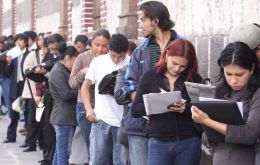
Argentina's National Institute of Statistics and Census (Indec) released a report Wednesday showing that unemployment fell to 6.2% of the labor force in the second quarter of 2023, an improvement from the 6.9% recorded between January and March.
-
Wednesday, May 1st 2019 - 03:10 UTC
Tens of thousands demonstrated in partial strike in Argentina; unions divided as to how face Marci’s austerity measures
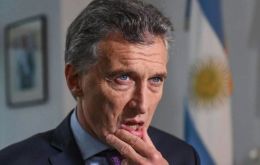
Tens of thousands of Argentines demonstrated on Tuesday in a partial strike that grounded airplanes and shut banks and other businesses to protest the economic policies of President Mauricio Macri.
-
Friday, March 17th 2017 - 21:55 UTC
Unemployment in Argentina falls to 7.6%: less people looking for jobs
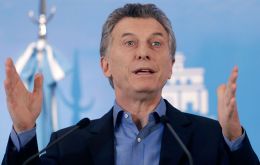
Argentina's unemployment rate fell to 7.6% in the fourth quarter of 2016, the government's Indec statistics agency said in a report on Thursday, down from 8.5% in the third quarter as thousands of people stopped looking for work.
-
Wednesday, August 24th 2016 - 07:25 UTC
Argentina unemployment in second quarter, 9.3%; first official data since Macri took office

Argentina had 9.3% unemployment in the second quarter of the year, the government's Indec statistics agency said in a report on Tuesday. It was the first official unemployment data to be published by Argentina since Mauricio Macri became president in December.
-
Monday, May 9th 2016 - 07:33 UTC
Massive protest in Comodoro Rivadavia against the oil industry weak activity
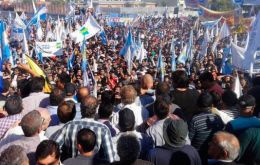
More than 50,000 workers blocked the centre of Comodoro Rivadavia, in Argentina's Patagonia main oil-producing region in a protest against layoffs. Striking oil workers were joined by teachers, truck drivers, builders and other sectors in the demonstration.
-
Monday, May 9th 2016 - 07:14 UTC
Jobs, layoffs and severance payment at the heart of Argentina's public debate
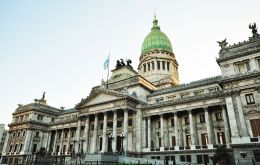
Unemployment and jobs are in the heart of public debate in Argentina. A public opinion poll released last week revealed that 48.3% of Argentines fear he/she or a relative might lose their jobs in the next six months.
-
Friday, May 6th 2016 - 06:38 UTC
Bad news for Macri: Moody's forecasts Argentine economy will shrink 1.5%
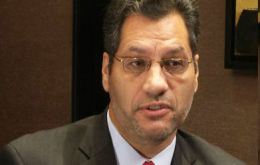
Despite the Argentine government’s forecast of a much better economic scenario in the second half of the year, credit rating agency Moody’s disagrees, saying the economy is set to shrink by 1.5%, followed by a growing unemployment and an inflation rate well above 30%.
-
Saturday, April 30th 2016 - 12:12 UTC
Argentine unions take to the streets to protest job cuts and inflation
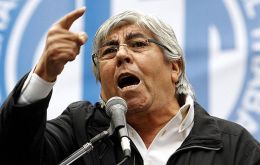
Argentina’s strongest unions brought thousands of people into the streets Friday to protest high inflation and job cuts in the biggest demonstrations against President Mauricio Macri since he took office in December. Demonstrators waving blue and white Argentine flags flooded the main avenues of Buenos Aires, blocking traffic in a protest that brought together rival unions that put aside differences to protest Macri’s policies.
